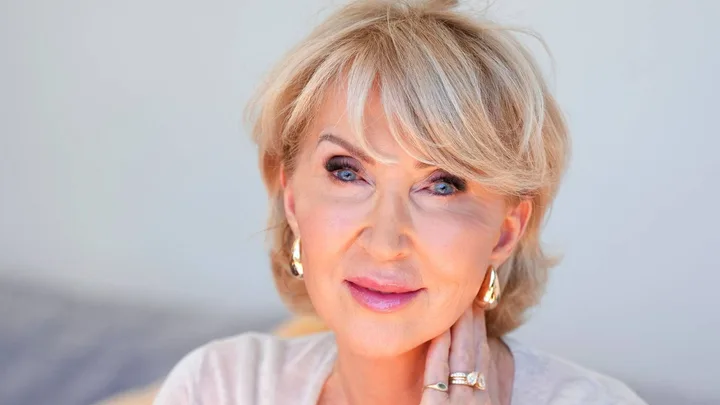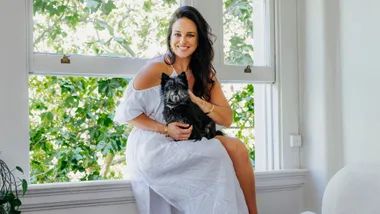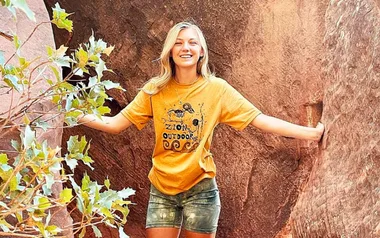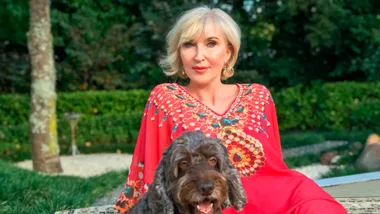Julia Hartley Moore has packed a lot into her life. A solo mum of three by the age of 20, she later became a best-selling author and a star of reality television. Now 71, Julia is New Zealand’s best known private investigator. She also co-produced Three’s top-rating series Polk: The Trial of Philip Polkinghorne. Her production company, Blonde Ambition, is currently working on a series of true-crime projects for TV.
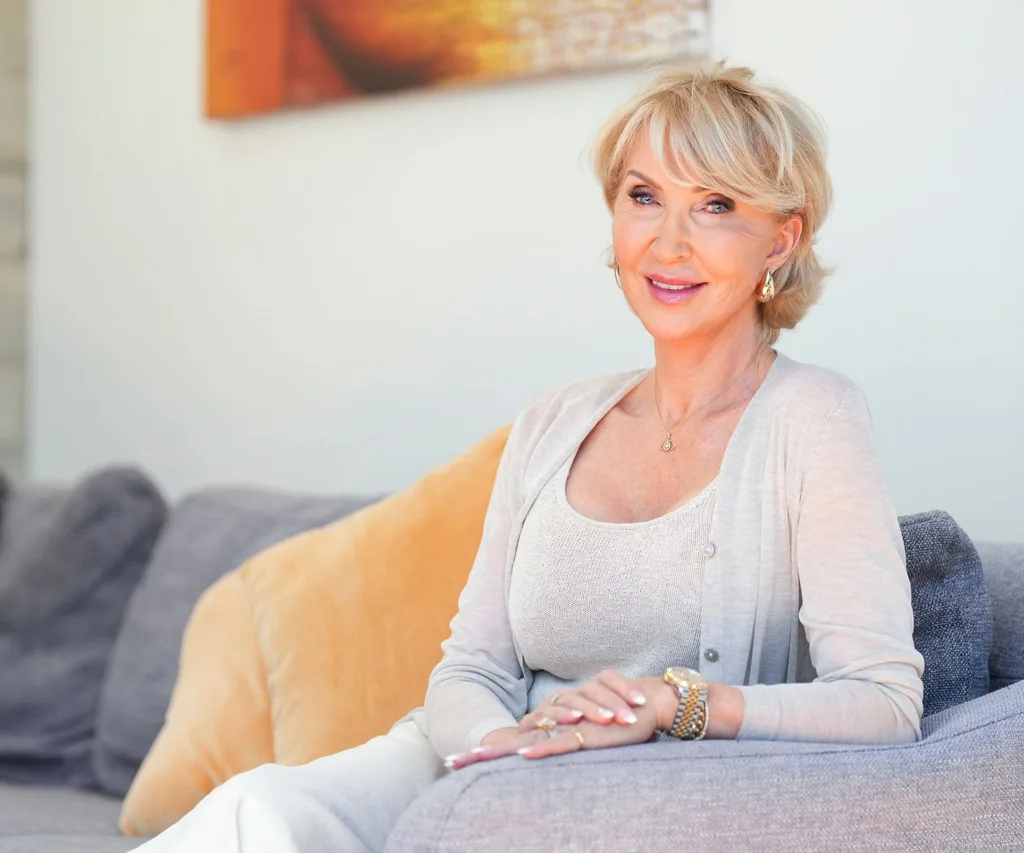
Growing up different
I wasn’t brought up like other Kiwi kids. Even though we lived in West Auckland, my parents were both academics and avid readers who dressed for dinner. Dad was also a poet who played the piano and wrote articles for foreign magazines, and Mum sang beautifully and was very creative. She had gifts in design and fashion, and she made all our clothes. Avid hunters, my parents also taught me to shoot from an early age and at school I felt like this odd kid who didn’t fit in.
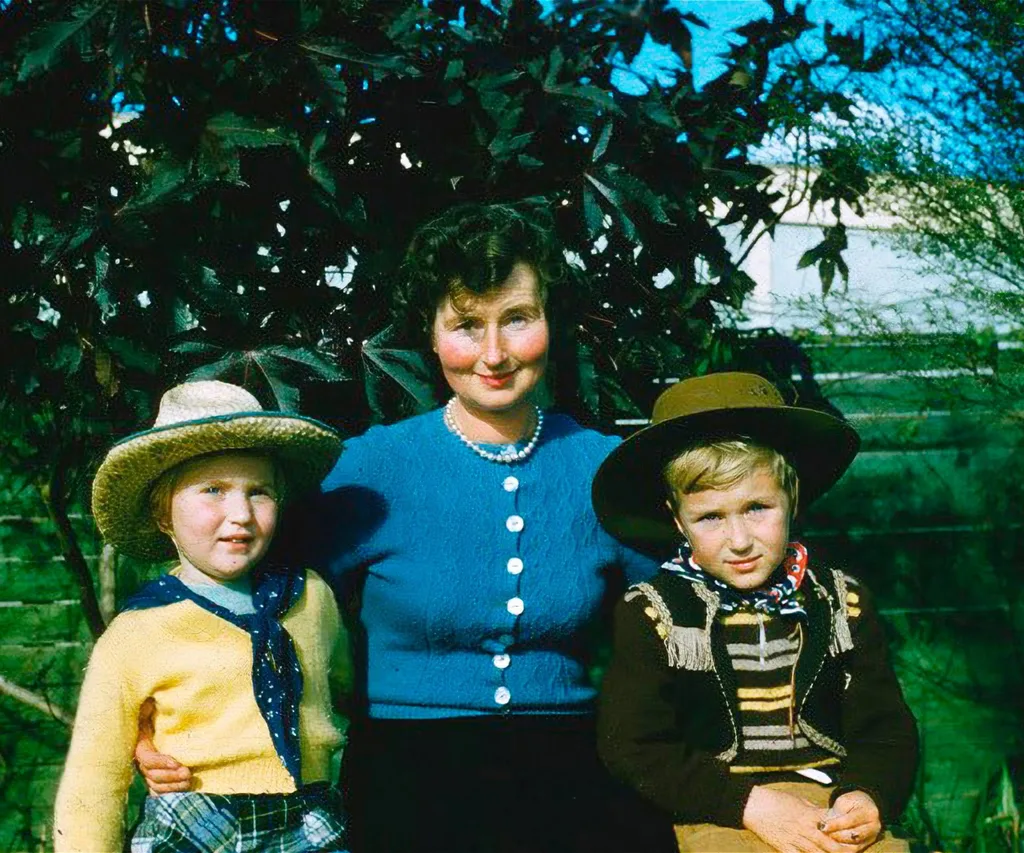
Power in the struggle
I’d just turned 15 when I fell pregnant following non-consensual sex. In those days, it was illegal to have a child at 15. Unwed girls were usually sent away to have the baby, which was then adopted out. But my parents refused for their grandchild to be given away and I couldn’t give that baby up either. I had friends who went away, but I stayed home and my parents stood by me, even though they lost friends because of it. I then had twins a year later. My eldest is 56 this year, the twins are 55, and I have grandchildren in their thirties and great-grandchildren who range from 10 down.
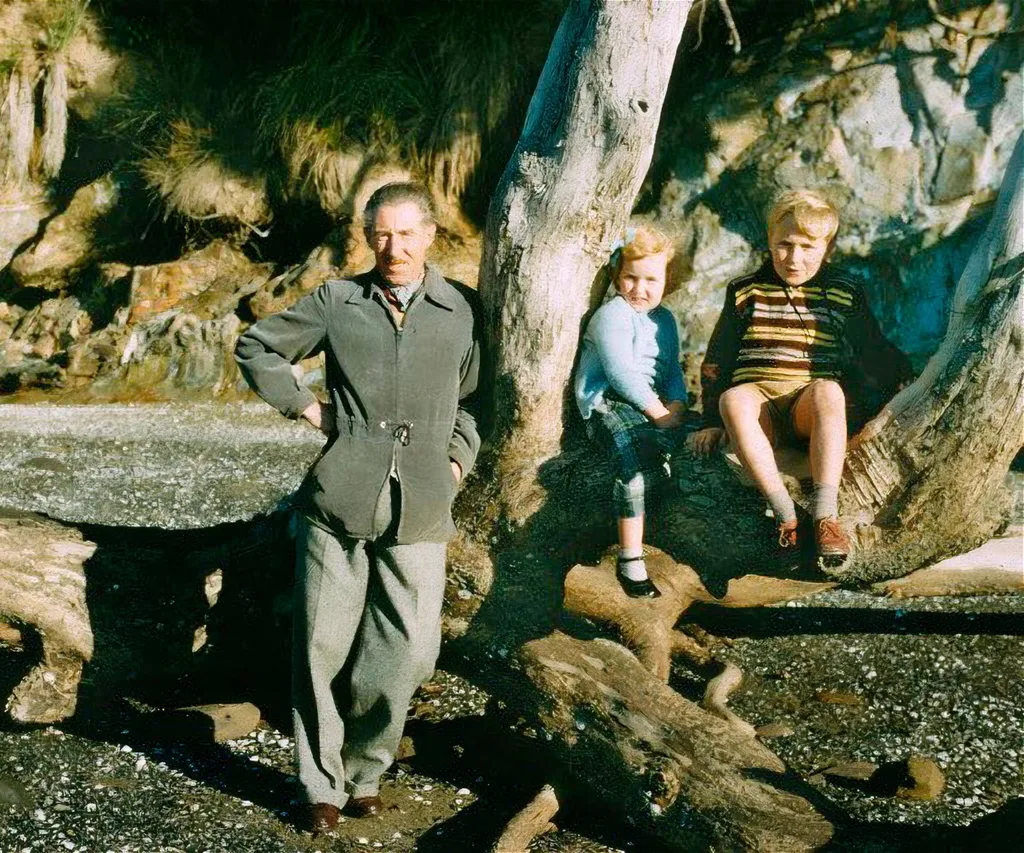
My mother used to say my girls were sent to keep my feet on the ground, as it was a serious responsibility at such a young age. When the girls were tiny, I’d prod them in their bassinets to make sure they were alive. Although I did give one of them a chocolate fish and Mum was horrified to see this baby sucking on marshmallow and chocolate. But I was still a child and I thought she’d like it because I liked them. Unless you’ve been there, it’s hard to explain, but I’m grateful to my girls for shaping me and teaching me so much about life.
Dad was 50 when I was born and Mum was about 40, and they both died when I was 30.
But because I was consumed with parenting from the age of 15, I never asked about their lives because my hands were full with three babies. Even though people say time heals all wounds, I still miss my parents terribly. I went to London when I was 40 and a recruitment agency sent me to work in the perfume department at Harrods, London’s poshest store.
On my first day, Mohamed Al-Fayed came down to the floor – he’d walk through the store every day at one o’clock – and he asked where I was from. From then on he called me Miss New Zealand and said he loved my enthusiasm. Al-Fayed has since been accused of terrible crimes against women who worked for him. In retrospect, it was lucky I was older, as he much preferred girls in their early twenties. I saw one girl get in his Rolls-Royce and the other staff warned me to avoid him. The saying was, if you went with him you were fired and if you resisted his advances, you were fired.
At Harrods, I was involved in helping shut down an in-house theft ring and one of Harrods security managers told me I had the makings of a great detective.
I remembered that when I returned to New Zealand and I set up a meeting with two private investigators. The PIs weren’t very encouraging because I had no history in the business and no police background. But the minute someone tells me I can’t do something, I want to do it more. So I registered, got my licence and put an ad in the Yellow Pages. Business took off. Next minute, I was on 60 Minutes, then starring in a PI reality show. It’s been 29 years since I started the agency and I love being able to pick and choose what I do.
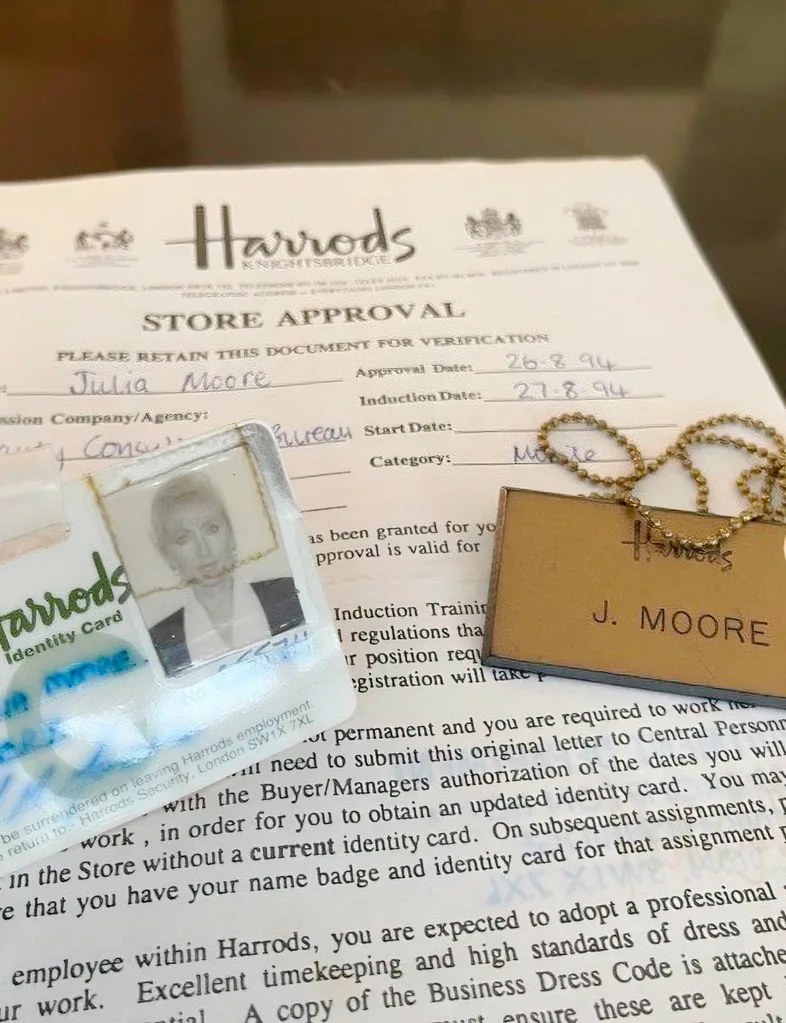
Once established, Penguin contacted me about writing a book.
After the first one was published, I went to them with an idea for another about infidelity. ‘That would be like writing a book about cancer and no one would want to read it,’ they said. So I went to HarperCollins and they said yes at the first meeting, and the infidelity book was published around the world in 12 languages!
Being a private eye isn’t all glamour.
It can be hours on end of covertly watching for a door to open or a car to arrive. But it’s rewarding when you help a child, or someone who’s been scammed or cheated, although it’s not a good idea to drink a lot of fluids on these long jobs. I learned that the hard way! Nowadays, I use a specialist team of former cops to do my surveillance and they love it.
Most women know when their partner is betraying them, but they need someone like us to confirm it.
One lady employed us to watch her husband while she was away. When she rang to ask if we’d seen anything unusual, I received a text from one of my investigators to say a woman had arrived at the family home. We followed the husband and the woman to a local beach as he walked the family dogs. He sent his wife a picture with just him and the dogs, to show the innocent time he was having. Our investigator also took a picture, but unlike the one the wife had received, this one showed him holding hands with the other woman.
No one wants to know their partner is being unfaithful and a lot of clients blame the other woman.
But I remind them: ‘You don’t have a contract with her – you have one with your husband, so he’s the one you need to blame.’
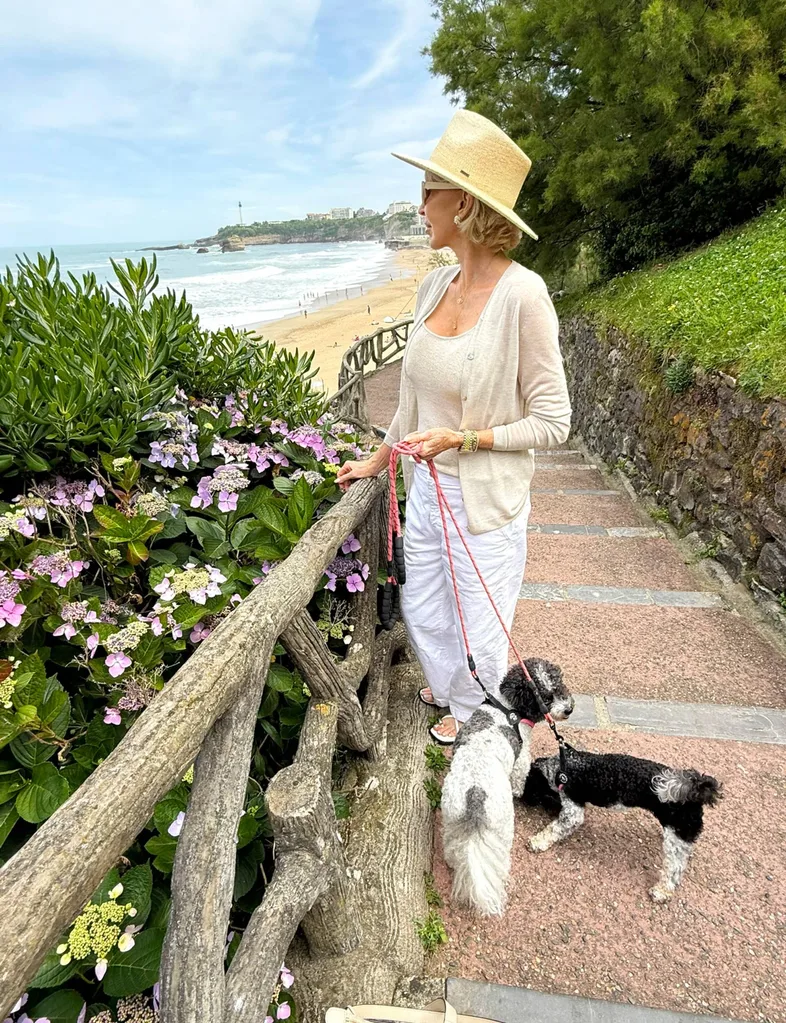
The Polkinghorne trial was so sad because Pauline had this blind faith in her husband, when she was actually in a relationship
of coercive control.
After 30 years of being conditioned, she couldn’t see what a manipulator he was. When I met Philip Polkinghorne, he blamed Pauline for every problem in their marriage, making her out to be a drug user, a willing sexual experimenter and a spendthrift. During the trial, of course, the full picture of the relationship between Pauline and Philip emerged.
Some people think I must be a man-hater because of my work.
I say to them, ‘I love men. I wouldn’t have married three of them if I didn’t.’ And I’ve been happily married to Steve for 16 years. We work remotely from a lovely apartment in Biarritz, on the Atlantic coast in France. The time difference means lots of late nights and early rises, but it’s worth it. Society here is incredibly polite. When you stop at a crossing, pedestrians nod their thanks. When you enter a store, we all greet each other. Whether it’s a high-end shop or a fishmonger, it’s the height of bad manners if you don’t say bonjour.
There’s also a slower pace of life here. Everything shuts from midday to two o’clock and no one races to have a sandwich because life is about appreciation, whether of food or art, beauty or culture. And the ocean is divine with a lighthouse that swishes its beam around every night.
Helping people is a privilege.
I’ve also been through a lot, so I know what life can be like. I also know it’s a big deal for people to ring me and I don’t charge for those calls. But one thing I tell my clients, ‘Don’t look at difficulties as obstacles, look at them as opportunities.’ Things come into our lives to teach us something, and if we don’t experience hardship, we’ll never learn anything. Even though it’s hard at the time, there’s always a timeframe to pain.
I’ve had to be fearless to move to France, but change is good.
I’m also getting to that age when the runway ahead of me is a lot shorter than the runway behind me. I call it the last trimester, which is why I intend to be grateful and to keep doing what I’m doing, and enjoying it for as long as I can.”
HELP IS HERE
Safe to Talk – 0800 044 334 or free text 4334 for help to do with sexual harm. Available 24/7 and staffed by trained counsellors.
